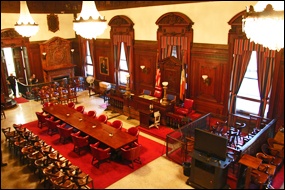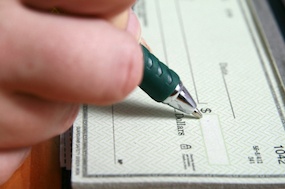An Explanation of How Probate Works in New York
How does probate work in New York? After a loved one has died, the estate must be distributed, creditors must be paid, and estate taxes must be satisfied. This is done in Surrogate’s Court. In New York City, we call it a “probate proceeding” if there is a will and we call it “estate administration” if there is no will.
The Roles of the Court and the Personal Representative |
 |
The Surrogate’s Court will authorize distribution to the heirs only after debts and taxes are paid. The decedent’s personal representative (one specified by the will, called the executor, or one appointed by the court, called the administrator) must first satisfy debts and pay taxes, and only then distribute the estate to the heirs.
How probate works is that the Surrogate’s Court does not distribute the estate’s assets. It only supervises and approves distributions made by the personal representative. Beneficiaries who do not approve of the personal representative’s actions can apply to the court for an accounting of the estate or for the removal of the personal representative.
The Three Steps of the Probate Process
Simply put, the way probate works can be viewed as a three-step process:
Step 1:
|
 |
The first thing for the personal representative to do is to make a list of the estate’s assets. The way probate works is the personal representative needs to know exactly what is the estate consists of and the value of its individual parts. If the estate has assets that need to be valued by a specialist, such as real property or a business, the personal representative will need to have them appraised. After compiling the inventory, the personal representative must file it with the court.
Step 2:
|
 |
After the decedent’s spouse and children are given a small allowance as required under the law, the personal representative will proceed to pay off debts and taxes. That’s how probate works.
Step 3:
|
 |
Once the debts are paid off, the personal representatives distributes the estate. If the will is clear on who gets what, this is a simple process. If the will is unclear, or if after paying off debts there is not enough estate left to satisfy all the legacies, a contest might ensue. That’s how probate works in New York, in a nutshell.
Call the Law Offices of Albert Goodwin at (212) 233-1233 and make an appointment to discuss your probate proceeding and how it works.
